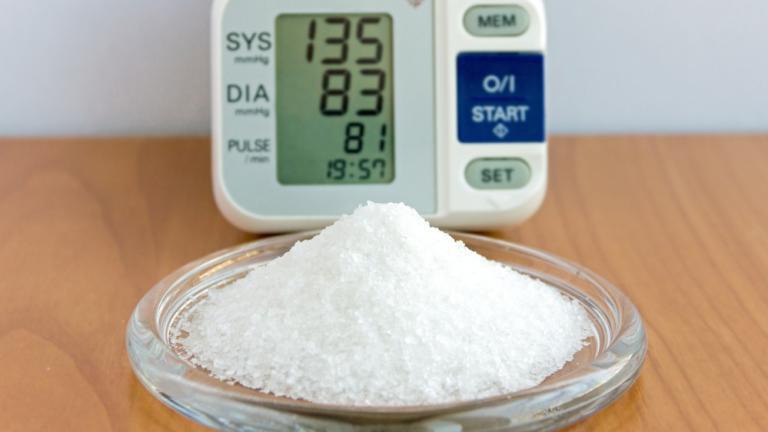
Title: Too much salt may inflame brain, increase blood pressure: Study
A high-salt diet is a common phenomenon in many parts of the world, particularly in developed countries where processed and packaged foods are readily available. While the health risks associated with excessive salt consumption are well-documented, a recent study has shed new light on the adverse effects of a high-salt diet on the brain and blood pressure.
According to a study published in August 2025, a diet rich in salt can trigger brain inflammation, which in turn drives up blood pressure. The study, conducted by researchers at a leading institution, used a novel approach to mimic human eating habits and investigate the effects of a high-salt diet on the brain and cardiovascular system.
To conduct the study, the researchers used rats as a model and provided them with water that contained 2% salt. This is equivalent to a diet that is high in processed and packaged foods, such as fast food, bacon, instant noodles, and processed cheese. The researchers used advanced brain imaging techniques to monitor the effects of the high-salt diet on the brain and cardiovascular system.
The results of the study were striking. The researchers found that the high-salt diet triggered immune cell activation in the brain, leading to inflammation and a surge in the hormone vasopressin. Vasopressin is a hormone that plays a crucial role in regulating blood pressure, and an increase in its levels can lead to hypertension.
The study’s findings suggest that a high-salt diet can have a direct impact on the brain and cardiovascular system, leading to inflammation and increased blood pressure. This is a significant finding, as it highlights the need for individuals to be aware of the potential health risks associated with a high-salt diet and to take steps to reduce their salt intake.
But what exactly happens when we consume too much salt? When we eat salty foods, our body responds by increasing the amount of sodium in our bloodstream. This can lead to an increase in blood pressure, as the body tries to dilute the sodium by increasing blood volume. Over time, this increase in blood pressure can lead to cardiovascular disease, including heart disease, stroke, and kidney disease.
The study’s findings also suggest that the brain plays a key role in regulating blood pressure, and that a high-salt diet can disrupt this regulation. The researchers found that the immune cells in the brain, known as microglia, become activated in response to a high-salt diet, leading to inflammation and the release of pro-inflammatory cytokines. These cytokines can stimulate the release of vasopressin, leading to increased blood pressure.
The study’s lead author emphasized the importance of the findings, stating that “our study highlights the need for individuals to be aware of the potential health risks associated with a high-salt diet. We know that many people consume excessive amounts of salt, and this can have serious consequences for their health. By reducing salt intake and adopting a balanced diet, individuals can significantly reduce their risk of developing cardiovascular disease.”
The researchers also emphasized the need for further study to understand the mechanisms underlying the effects of a high-salt diet on the brain and cardiovascular system. They noted that the study’s findings suggest that the brain plays a key role in regulating blood pressure, and that a high-salt diet can disrupt this regulation. Further research is needed to understand the neural mechanisms underlying these effects and to develop effective treatments for individuals who are at risk of developing cardiovascular disease.
In conclusion, the study’s findings suggest that a high-salt diet can have a direct impact on the brain and cardiovascular system, leading to inflammation and increased blood pressure. The study’s results highlight the need for individuals to be aware of the potential health risks associated with a high-salt diet and to take steps to reduce their salt intake. By adopting a balanced diet and reducing salt consumption, individuals can significantly reduce their risk of developing cardiovascular disease.
Source:
https://www.sciencedaily.com/releases/2025/08/250822073818.htm






